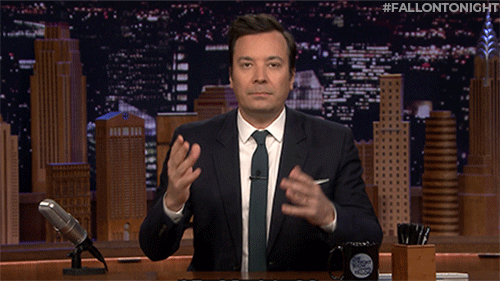Welcome to The Audio Storyteller: tips and ideas for audio producers. Subscribe to get the full list of jobs, courses and other fun stuff straight to your inbox.
When I’ve been working on a project for a while, by the time I get to the mic, my voice seems to have lost some of the enthusiasm and curiosity that first drew me to the story. I’m still intrigued by the characters and the plot, but I don’t sound like I am. I end up sounding…flat.
I had a mini-session with voice coach Emily Elmore and she said a thing I liked — she said I needed to ‘manufacture discovery’, as in act like it’s the first time I’ve read the script, and bring that emotion into my voice in order to take the listener on a journey.
I asked Emily to share a few tips here on sounding our most authentic selves on the mic.
How can we use our voices to really connect with listeners?
Our listeners have a natural, built-in BS detector, and we can’t stand when it goes off. Authenticity and passion for the topic you’re discussing is key to connecting with listeners. Even in hyper-professional or broadcast settings, having a clear connection with your subject matter goes a long way, and makes the listener feel like they should care about what you’re saying as well. If you emotionally connect with your work, they will too. If you have trouble expressing this connection, that’s where coaching comes in really handy.
How can hosts/producers sound like themselves?
There are tons of warm ups, exercises, and tools that should not be brushed under the rug before your tracking session. Warming up your voice, making sure you’re emotionally connected to the piece and that you have a clear audience in mind goes a long way. Take the pressure off yourself, breathe, trust that you’ve done all the work on the page, and really allow yourself to connect. Trust that your voice is worth listening to, and your story is worth being told.
How can we stop saying um, ahh, y’know...if we should stop at all?!
These are called ‘filler words’ and it all depends on the context of a piece. Regardless, I wouldn’t beat yourself up about it. If this is how you authentically speak, and removing them would get in the way of you connecting to the work, then don’t worry about it. If you’re feeling really ‘off’ today and you keep stammering or tripping over your words, then take a five-minute break, walk around the block, drink some water and come back to it. The worst thing you can do is beat yourself up, or bring shame into your tracking session. Again, just breathe, and trust yourself.
Are there any tricks or techniques to get in the zone before narrating a story?
It is vital to the health and longevity of your voice that you learn how to get in touch with your breath, and nail down a good warm up that works for you. If you’ve got that in the bag, just really take a few minutes to close your eyes and picture your listener. Who are you telling this story to? Why do they need to hear it? What do you want them to gain from listening to it? Get passionate about this!
What do you think are some examples of great vocal work in podcasting?
I love Sam Sanders. He perfectly walks the line between being emotionally connected while maintaining an air of professionalism.
An excellent example of emotion in storytelling is a piece called One Day by Monique Laborde, which won the 2020 KCRW Radio race. She speaks openly and emotionally about a traumatic event in her family, without making it theatrical or overly dramatic. (Disclaimer, she is my partner, but an incredible storyteller nonetheless).
Emily Elmore is a voice coach based out of LA. She coaches podcast and radio hosts on their tracking and their relationship to their voices as a whole. The goal of her work is to help hosts sound authentic on the mic, and unlock their own unique voice for podcast and radio hosting. She wants to help hosts feel comfortable and at ease when speaking scripted text. With 14 years of performance experience, including a BFA in Acting from Emerson College, her techniques stem from The Linklater method, acting for camera, and voiceover training. Get in touch: emilyannelmore.voice@gmail.com
Voice resources
📌NPR guide to sounding your best - with printable PDFs for both talent and producer
📌How to sound like yourself on NPR’s Student Podcast Challenge featuring NPR vocal coach Jessica Hansen
📌NPR tips for training your voice, also from Jessica Hansen
📌Astound - voice and speech coach app
📌Sounding like yourself - How Sound
The email version of this newsletter is full of jobs, events, courses and other resources. Hit subscribe to get it all delivered straight to your inbox 👇
What I’m listening to
🎧 This incredible episode of Woman’s Hour features broadcaster and executive producer Clemency Burton-Hill’s first radio interview after she suffered a brain haemorrhage last year. It’s moving and visceral and life-affirming.
🎧 Loving immersing myself in the murky musical past of my former home (Manchester) by way of Transmissions: The Definitive Story of Joy Division & New Order, narrated by the magnificent Maxine Peake.
Thanks for reading! I’d love to hear your comments, tweet or email me. If you think a coworker or friend would also benefit from the newsletter, I’d appreciate you forwarding this email. They can sign up here. Oh, and if you’re looking for a new music and sound effects library, Epidemic Sound is great. Feel free to use my referral!





